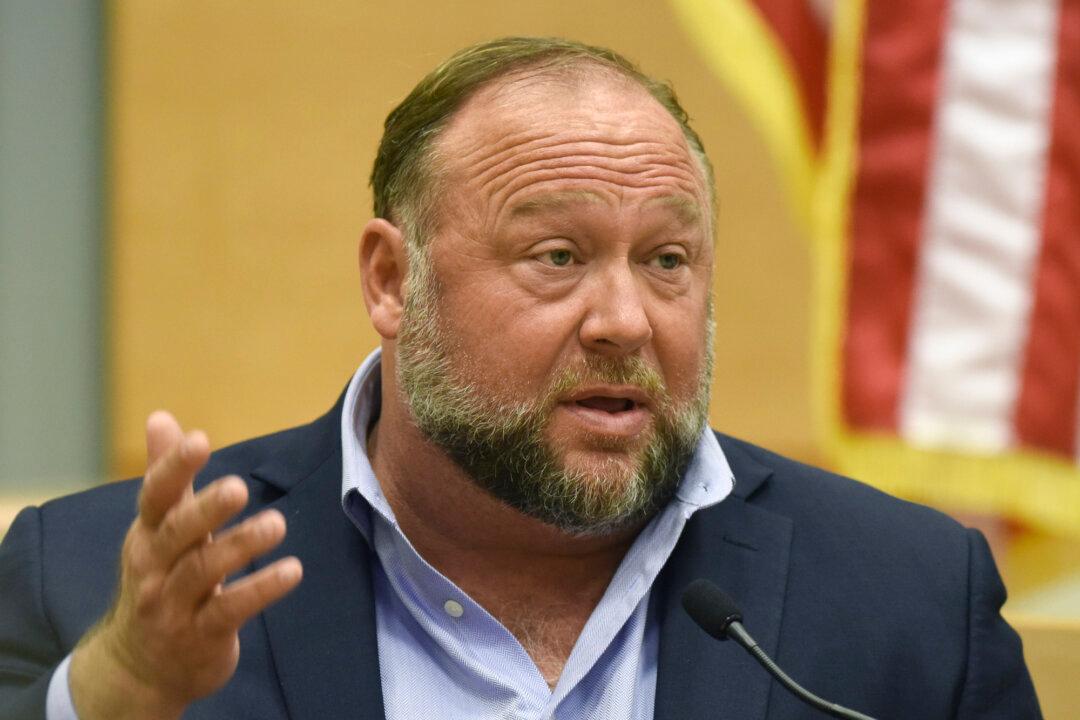A judge has ordered Infowars host Alex Jones and his company to pay an extra $473 million in a lawsuit filed by families of victims of the Sandy Hook school massacre. The order comes on top of the nearly $1 billion jury verdict issued last month, bringing the total judgment against Jones in the lawsuit to $1.44 billion.
Connecticut Judge Barabara Bellis ordered the punitive damages on Jones and Free Speech Systems, for having made defamatory claims about the Sandy Hook mass shooting—the deadliest school shooting in U.S. history that killed 26 people at Sandy Hook Elementary School in Newtown, Connecticut, on Dec. 14, 2012.




